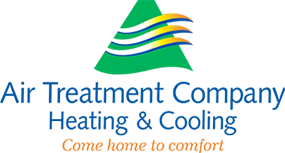Your home’s indoor air quality is something that should not be overlooked. Poor indoor air quality can cause short- and long-term health problems. According to the U.S. Environmental Protection Agency, the concentration of air pollutants indoors can be as much as two to five times greater than the level outside. This is a real problem since we spend 90% of our time indoors. Ensuring that the air in your home is free from pollutants can help you protect your health and your family’s health.
How can I tell if my air ducts need to be cleaned?
Excess dirt and mold in your air ducts can be a source of allergies and other respiratory problems. The EPA recommends that you have your air ducts cleaned as needed. Some of the signs that it is time to have your air ducts cleaned include the following:
Air filters that get dirty too quickly
Insect or rodent infestations
Dirt around the registers and vents
Noise in your ductwork
Visible mold
Inconsistent airflow
If you notice these signs, schedule an inspection service and an air duct cleaning.
How often should I change my air filters?
How often you need to change your air filters depends on several factors, including the following:
Type of air filter
Household size
Whether you have pets
Construction and air pollution levels around your home
If you purchase standard air filters of 1 to 3 inches, manufacturers recommend that you replace them every 30 to 90 days.
- Allergies: Replace every 30 days
- Pets: Replace every 60 days
- High-quality air filter: Replace every 90 days
If you’re in doubt, remove the filter and hold it up to a light. If you can’t see the light through the material, it’s time to replace it.
What kind of air purifier do I need?
There are several different air purifiers on the market; each addresses various problems, including allergens, bacteria, bad odors, and others. The common types of air purifiers include the following technologies:
UV filtration
HEPA filters
Ionizers
Activated carbon filters
UV filtration is frequently used with HEPA filters or activated carbon filters because UV light has been shown to destroy known pathogens, including viruses and bacteria.
HEPA filters are the most popular types of filters used in air purification systems. This is because they trap up to 99.97% of particles in the air. They are made of dense, fibrous material. While HEPA filters are great for people who have allergies, they do not filter out bad odors.
Ionizers work by giving the air an electrostatic charge, which binds particles to some collection plates that can be removed for cleaning.
Activated carbon filters are highly absorbent and are made out of porous activated carbon pieces. These filters help filter out volatile organic carbon compounds, including smoke, chemical emissions, and other problematic odors.
The best air purification system might include several technologies to work together and provide the cleanest air for your home. Installing an air purifier can help you to improve your home’s indoor air quality.
Contact Air Treatment Company Heating & Cooling
Improving the air quality in your home can help you and your family to breathe easier and enjoy better health. To learn more about the services that we provide, contact the professionals at Air Treatment Company by calling (703) 270-0881.


.2009290755550.jpg)